|
Rotten Library > Conspiracy > Project for a New American Century
Project for a New American Centuryaka PNAC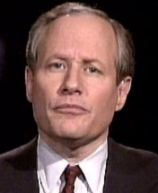 It sounds so innocuous. Who could object to a project for a new American century? It's a new century, and we live in America! What could possibly go wrong?
It sounds so innocuous. Who could object to a project for a new American century? It's a new century, and we live in America! What could possibly go wrong?The Project for a New American Century, aka PNAC, is a think tank founded in 1997 by arch-conservative commentator William Kristol, whose illustrious career peak was a stint as Dan Quayle's chief of staff. Despite this, Kristol somehow rose to become one of the Republican Party's leading intellectuals and editor of The Weekly Standard, the chief propaganda weapon of the neoconservative movement. Neocons are ultra-right-wing conservatives who basically believe the United States is entitled to rule the Earth. The movement was founded in the 1960s and '70s by a small group of pro-Israel, anti-communist intellectuals, including Kristol's father, Irving. The movement's militant anti-Communism went adrift after the fall of the Soviet Union, but resurfaced in the late 1990s in the form of militant anti-Everybodyism.
The neocons who banded together to form PNAC emerged from the Cold War with a conviction that America was entitled to drive world politics and culture. The group was founded in 1997 by a core group of disenfranchised right-wing idealogues that included:
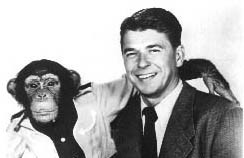 This motley crew of wealthy, white, middle-aged males -- along with several conservative policy wonks from academia and bureaucratia -- signed off on a statement of principles that aimed to provoke a resurgence of the Reagan era.
This motley crew of wealthy, white, middle-aged males -- along with several conservative policy wonks from academia and bureaucratia -- signed off on a statement of principles that aimed to provoke a resurgence of the Reagan era. Specifically, PNAC wanted to a return to the glory days when a charismatic, but not especially bright, president put a home-spun gloss on ideas he didn't really understand but which had been carefully crafted by his faceless subordinates. PNAC was remarkably successful in this effort. In addition to the re-institution of the glorious conservative figurehead, PNAC wanted to achieve the following policy goals:
(Under this view, South America and Africa were hardly worth considering, which may come as a surprise to anyone who's ever played Risk. Their combined oil reserves are capable of completely dominating world markets, and the political climate on both continents is generally more open to U.S. coercion through economic incentives. Meanwhile, their military capabilities are negligible. Being a rapacious conqueror is one thing, but being a stupid rapacious conqueror is quite another.) As the Clinton administration came to a close, PNAC moved decisively to make sure its agenda dominated the 2000 Republican presidential primaries. PNAC fielded its own candidates, including founding signers Steve Forbes and Gary Bauer, but Forbes had the charisma of a beached flounder, while Bauer's radical veneer sent voters fleeing in the opposite direction. Other PNAC-linked also-rans included Dan Quayle and Alan Keyes.
PNAC wasted little time crafting its agenda, which included regime change in Iraq from before day one. In September 2000, PNAC commissioned a secret report titled "Rebuilding America's Defenses," which endorsed the ongoing but contentious U.S. presence in Saudi Arabia and recommended the creation of a permanent U.S. military base in the Persian Gulf. The report identified pretexts for invading Iran and Iraq as part of its overall strategy. Ironically, PNAC's statement of principles contains the following paragraph:
The history of the 20th century should have taught us that it is important to shape circumstances before crises emerge, and to meet threats before they become dire. The history of this century should have taught us to embrace the cause of American leadership.
One year after the report was issued, it became clear that a dire threat had blossomed into a crisis while America's brand-spanking new PNAC guided leadership was napping. While the Bush foreign policy team kept its laser-like focus on Saddam Hussein, al Qaeda was flying hijacked jets into the World Trade Center and the Pentagon. PNAC's members were nothing if not determined. Despite overwhelming evidence that the September 11 attack was carried out by al Qaeda, Rumsfeld and other Bush administration insiders immediately began discussing ways to exploit the situation as a justification for bombing Iraq.
Before the war in Afghanistan was finished (and it's still not finished, by the way), military planners were already being pressured to move resources toward an Iraq invasion. Key PNAC members (especially Wolfowitz, Libby and Feith) pushed the Iraq agenda aggressively to a receptive president, who was still smarting over the guy who "tried to kill my dad."
When an investigation by former U.S. ambassador Joseph Wilson reported that the claim was false, someone leaked to the press the fact that Wilson's wife was a CIA agent, blowing her cover and potentially endangering her life. Although the source of the leak has not yet been definitely determined, the betting money is split between PNACkers Karl Rove and Doug Feith. In the wake of the bloody Iraq invasion, which left the country dangerously unstable and wracked with violence, the ranks of the PNAC cabal began to develop possibly terminal rifts. Cheney and other PNACkers had embraced a notion advanced by Iraqi con-man Ahmad Chalabi, who assured Cheney and PNAC's ultra-hawk idealogue Richard Perle that invading U.S. troops literally would be greeted by crowds of cheering Iraqis strewing flowers in their path.
Founder Kristol led the inevitable break in PNAC's previously monolithic ranks. As the occupation continued to languish into 2004, PNAC members outside the administration slowly began putting the screws to the PNACkers inside the administration.
Kristol and PNAC's "research paper" apparatus began planting the seeds of rebellion during 2004, as it became clear that there would never be any flowers strewn before triumphant U.S. troops in Iraq. While maintaining that the invasion of Iraq was completely justified, the outsiders began criticizing Unfortunately for Kristol and the outsiders, the PNACkers inside the administration had the distinct advantage of being inside the administration, and Bush remained steadfastly loyal to his soldiers. Despite a mounting number of PNAC-related scandals -- including the Nigerian uranium fiasco and allegations that an Israeli spy linked to Wolfowitz and Feith had infiltrated the Pentagon -- Bush refused to drop the hammer on Rumsfeld, Rove or any of the other PNACkers who had guided him into the Iraqi morass. In March 2005, Bush even moved to promote Wolfowitz to head up the World Bank, prompting a new round of complaints by America's increasingly discontented European allies. Given the profound mess that has resulted from PNAC's blueprint for world domination, one might hope that the think tank is destined for the dustbin of history, but one might be overestimating the American electorate, which barely realizes the group exists, let alone its role in crafting the Bush Administration's foreign policy. The current list of Republican aspirants for the 2008 presidential campaign includes PNAC founding signer Jeb "I delivered Florida" Bush. Perennial candidates and PNACkers Bauer, Forbes and Keyes are also lurking in the wings. The PNAC lobby doesn't have to win the primary to control the agenda, of course; it only has to win enough delegates to sway the general tenor of the party.
Powell is probably the neocons' worst nightmare, given the way the PNACkers trampled him during his tenure as Secretary of State. In fact, the ideological bloodletting that would surely ensue in a Rice vs. Powell race is enough to make you forget how odd it is that the Republican frontrunners for 2008 come down to a black man and a black woman. Powell vs. Rice would certainly be a hell of a lot of fun for political pundits and gamesmen, pitting a leading neocon architect against a man who could not possibly have more reasons for personal animosity toward the PNAC lobby (unless his wife is secretly a CIA agent). The American Century might not be off to a great start, but PNAC still has 95 years to turn it around. On the down side, the next item on the PNAC agenda is an invasion of Iran, which appears to be depressingly inevitable. And Islamic extremists in the Persian Gulf have an extremely long memory. At this rate, it might a lot longer than 95 years to "preserve and extend an international order friendly to American security, American prosperity and American principles." Unless, of course, your definition of a "friendly international order" is flexible enough to allow for periodic bouts of videotaped beheadings, in which case things are right on track. Woohoo! High fives for everyone!
The Players
|
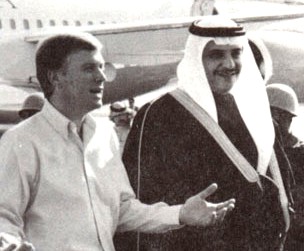
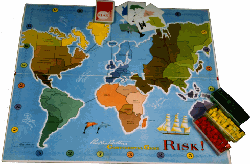 At its most basic, PNAC's policy agenda boils down to an openly imperialistic approach to global politics. PNAC endorsed using American economic and military might to dominate the world's major developed economies, including the Middle East, Europe, and Southeast Asia.
At its most basic, PNAC's policy agenda boils down to an openly imperialistic approach to global politics. PNAC endorsed using American economic and military might to dominate the world's major developed economies, including the Middle East, Europe, and Southeast Asia. 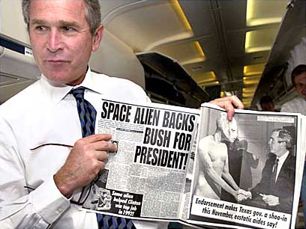 Despite their primary season flameout, Plan B was already in place. Hearkening back to the Reagan model, PNAC threw its support behind dim-but-affable Texas Gov.
Despite their primary season flameout, Plan B was already in place. Hearkening back to the Reagan model, PNAC threw its support behind dim-but-affable Texas Gov. 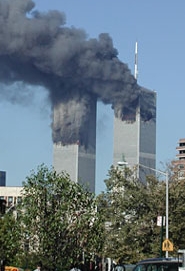 The reason this statement is ironic is that the 90-page "Rebuilding America's Defenses" report contains exactly one reference to
The reason this statement is ironic is that the 90-page "Rebuilding America's Defenses" report contains exactly one reference to 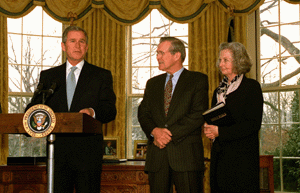 According to former White House counterterrorism director
According to former White House counterterrorism director 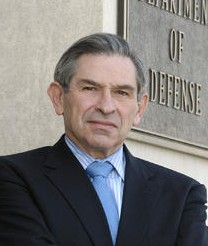 When the American public greeted the idea of an Iraq invasion with overwhelming indifference, PNAC began churning out "evidence" that Saddam Hussein possessed
When the American public greeted the idea of an Iraq invasion with overwhelming indifference, PNAC began churning out "evidence" that Saddam Hussein possessed 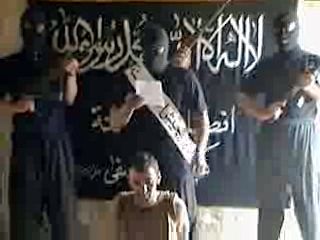 Suffice it to say, reality took a different turn. The 2003 Iraq invasion became the Iraq occupation, and the Iraq occupation became the bloody Iraqi occupation. By 2005, more than 1,500 U.S. soldiers had been killed in Iraq (in addition to literally uncounted thousands of Iraqi civilians).
Suffice it to say, reality took a different turn. The 2003 Iraq invasion became the Iraq occupation, and the Iraq occupation became the bloody Iraqi occupation. By 2005, more than 1,500 U.S. soldiers had been killed in Iraq (in addition to literally uncounted thousands of Iraqi civilians). 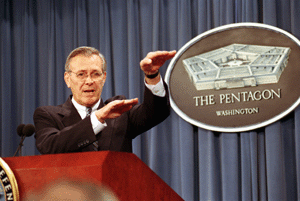 the way the war had been prosecuted, culminating in December 2004, when Kristol broke ranks with a dramatic Washington Post op-ed savaging Rumsfeld's performance as Secretary of Defense.
the way the war had been prosecuted, culminating in December 2004, when Kristol broke ranks with a dramatic Washington Post op-ed savaging Rumsfeld's performance as Secretary of Defense. 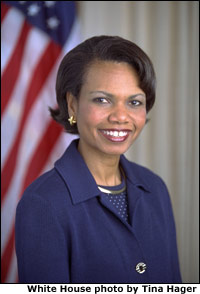 Polls indicate that
Polls indicate that